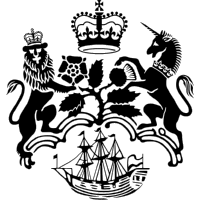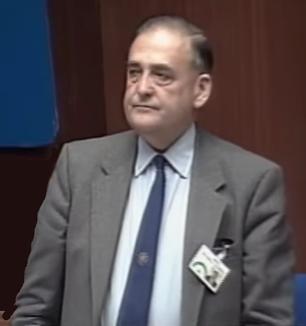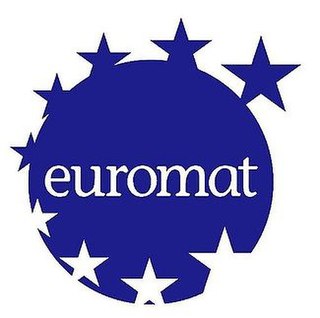Related Research Articles

Greyhound racing is an organized, competitive sport in which greyhounds are raced around a track. There are two forms of greyhound racing, track racing and coursing; the latter is now banned in most countries. Track racing uses an artificial lure that travels ahead of the greyhounds on a rail until the greyhounds cross the finish line. As with horse racing, greyhound races often allow the public to bet on the outcome.

The Department for Culture, Media and Sport (DCMS) is a ministerial department of the Government of the United Kingdom. It holds the responsibility for culture and sport in England, and some aspects of the media throughout the UK, such as broadcasting. Its main offices are at 100 Parliament Street, occupying part of the building known as Government Offices Great George Street.

The Board of Trade is a British government body concerned with commerce and industry, currently within the Department for Business and Trade. Its full title is The Lords of the Committee of the Privy Council appointed for the consideration of all matters relating to Trade and Foreign Plantations, but is commonly known as the Board of Trade, and formerly known as the Lords of Trade and Plantations or Lords of Trade, and it has been a committee of the Privy Council of the United Kingdom. The board has gone through several evolutions, beginning with extensive involvement in colonial matters in the 17th century, to powerful regulatory functions in the Victorian Era and early 20th century. It was virtually dormant in the last third of the 20th century. In 2017, it was revitalised as an advisory board headed by the International Trade Secretary who has nominally held the title of President of the Board of Trade, and who at present is the only privy counsellor of the board, the other members of the present board filling roles as advisors.

The Canadian Labour Congress, or CLC is a national trade union centre, the central labour body in Canada to which most Canadian labour unions are affiliated.

The Entertainment Software Association (ESA) is the trade association of the video game industry in the United States. It was formed in April 1994 as the Interactive Digital Software Association (IDSA) and renamed on July 21, 2003. It is based in Washington, D.C. Most of the top publishers in the gaming world are members of the ESA.

Sega Sammy Holdings Inc. is a Japanese global holding company and conglomerate formed from the merger of Sega and Sammy Corporation in 2004. Both companies are involved in the amusement industry.

Quiz machine is a term used in the UK for commercial coin-operated video quiz games that offer cash prizes for winning performances. It is a type of slot machine in which the player must answer questions in addition to, or instead of, matching symbols. These machines are usually found sited in pubs, bars, and other places of entertainment. The term quiz machine is often used interchangeably with the trade term SWP although not all SWP games are quiz based.

The Carleton University Students' Association is a non-profit corporation that represents the undergraduate students at Carleton University in Ottawa, Ontario, Canada.
Coinslot International is a UK trade magazine that caters for the 'pay-to-play' leisure sector, generally known as 'coin-op' before the widespread introduction of electronic means of payment. It is published weekly with a 'double' issue over the Christmas/New Year period.
Gambling in the United Kingdom is regulated by the Gambling Commission on behalf of the government's Department for Digital, Culture, Media and Sport (DCMS) under the Gambling Act 2005. This Act of Parliament significantly updated the UK's gambling laws, including the introduction of a new structure of protections for children and vulnerable adults, as well as bringing the burgeoning Internet gaming sector within British regulation for the first time.

Geoffrey Finsberg, Baron Finsberg, was a British Conservative politician. He was the Member of Parliament (MP) for Hampstead from 1970 to 1983, and for its successor constituency, Hampstead & Highgate, from 1983 to 1992.

The Isle of Man Government is the government of the Isle of Man. The formal head of the Isle of Man Government is the Lieutenant Governor, the personal representative of the Lord of Mann. The executive head is the Chief Minister.

The Department for Professional Employees, AFL–CIO (DPE) is a semi-autonomous "trade" department of the AFL–CIO, and serves as an advocate for professional workers within the federation, and before legislative bodies, the press and the public.

The European Gaming and Amusement Federation (EUROMAT) is a Brussels-based federation of European trade associations representing the gaming and amusement industry at European Union level.
Vivian Wineman was president of the Board of Deputies of British Jews, the representative body of the Jewish community in Britain, from 2009 to 2015.

The Great World Amusement Park also known locally as "Tua Seh Kai" in Hokkien, was the second of three former amusement parks in Singapore, along with New World and Gay World. It was established in 1929 and closed down in 1978. It provided entertainment and leisure to people, catering especially to the middle and lower income groups of citizens in the past.
The International Association of Amusement Parks and Attractions (IAAPA) represents over 6,000 amusement-industry members in more than 100 countries worldwide and operates several global attractions-industry trade shows. Its annual IAAPA Expo in Orlando, Florida, is recognized as the world's largest attractions trade show in the number of attendees and exhibitors and providing members insight into current amusement trends, laws, operations and industry methodology. IAAPA also helps to promote guest-safety and ride-safety guidelines in conjunction with ASTM International and assists its members to uphold the highest amusement-industry safety and professional standards.
Gambling has been present in the Philippines since at least the sixteenth century. Various legal and illegal forms of gambling are found almost all over the archipelago. The government manages gambling through the Philippine Amusement and Gaming Corporation (PAGCOR) a state-owned enterprise which both operates a number of individual casinos and in turn acts as a regulator to privately owned casino operators. Since 2016 PAGCOR has also granted operating licenses and overseen the regulation of growing online gambling sector serving offshore markets. Casino gambling and integrated resorts have become a key component of the Philippines appeal as a tourist destination with more than twenty casinos found in Metro Manila alone.

Quicksilver is a British amusement arcade and gambling machine company. It is the UK's largest slot gambling machine operator, with over 200 high street outlets and about 10,000 gambling machines. Quicksilver describes itself as the "largest amusement business in the UK".

The Association for UK Interactive Entertainment (Ukie) is a non-profit trade association for the video game industry in the United Kingdom (UK). Ukie was founded in 1989 as the European Leisure Software Publishers Association (ELSPA), then changed to Entertainment and Leisure Software Publishers Association (ELSPA) in 2002, and to its current name in 2010.
References
- ↑ "Trade Association BACTA donates £14,000 to charity YGAM" . Retrieved 22 June 2018.